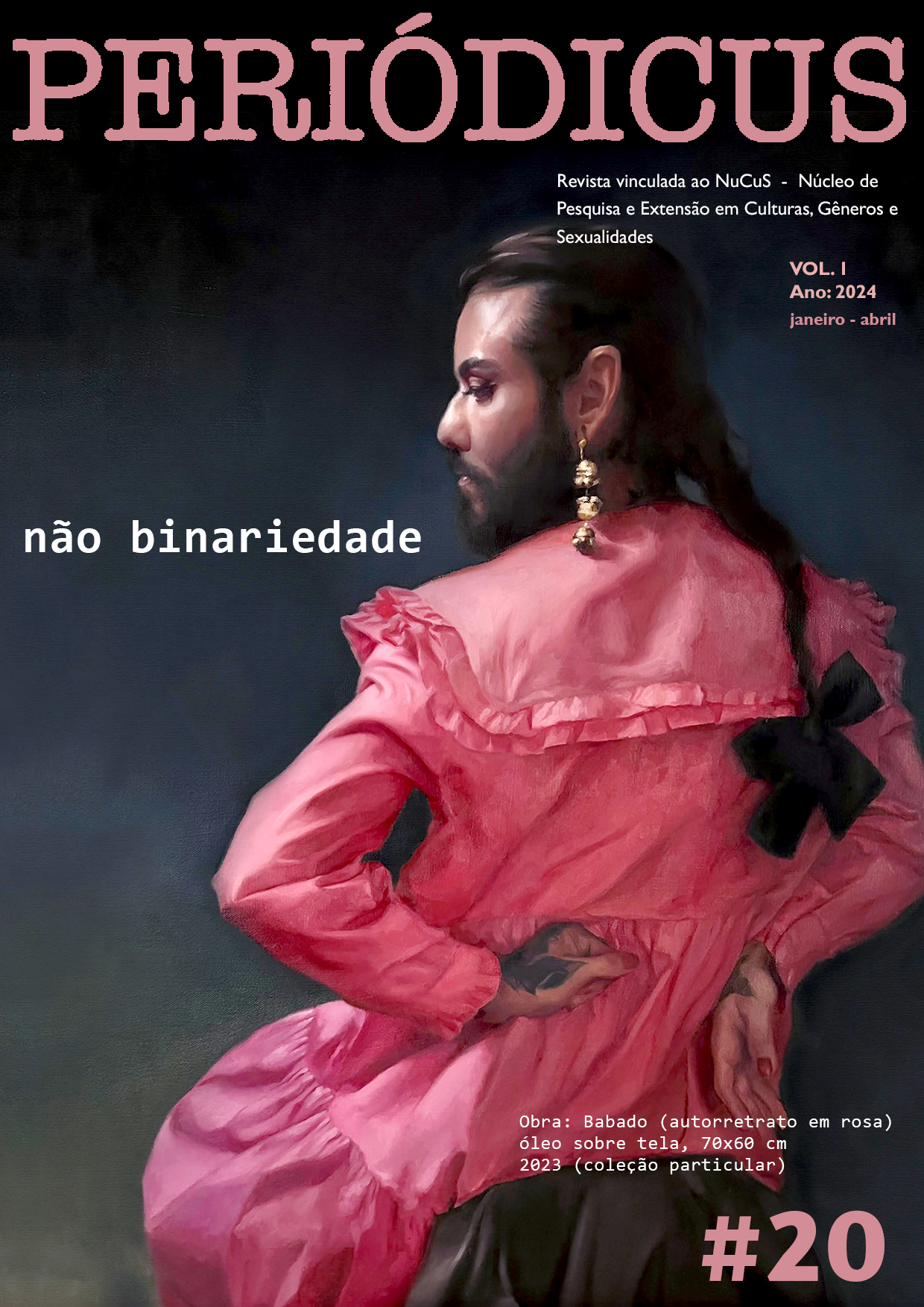Microaggression experiences against non-binary identity
DOI:
https://doi.org/10.9771/peri.v1i20.53074Abstract
Microaggressions are subtle ways of carrying out attacks on identities because of gender and sexuality. Focusing on non-binary identity, this qualitative research sought to analyze the reports of three participants considering the twelve themes of microaggression by Nadal, Skolnik and Wong (2012), using, for this, a thematic analysis, with the objective of analyzing the most recurrent themes. As a result, only some of the themes were contemplated by the participants' speeches, with greater representation in two themes, being a theme about systemic and environmental microaggressions and the theme of the use of incorrect gender and/or transphobic terminology. Further development is suggested on microaggressions against trans people, especially against non-binary people.
Downloads
Downloads
Published
How to Cite
Issue
Section
License
Copyright (c) 2024 Gabriel Ponce de Leão Lima Almeida, André Luiz Machado das Neves, Daniela dos Santos Dantas

This work is licensed under a Creative Commons Attribution-NonCommercial 4.0 International License.
Authors who publish in this journal agree to the following terms:
Authors retain copyright and grant the journal the right of first publication, with the work simultaneously licensed under a Creative Commons Attribution Noncommercial License that allows the work to be shared with acknowledgment of authorship and initial publication in this journal, but prohibits commercial use.
Authors are authorized to enter into separate additional contracts for non-exclusive distribution of the version of the work published in this journal (e.g., publishing in an institutional repository or as a book chapter), with acknowledgment of authorship and initial publication in this journal.
Authors are permitted and encouraged to publish and distribute their work online (e.g., in institutional repositories or on their personal website) at any point before or during the editorial process, as this can generate productive changes and increase the impact and citation of the published work (see The Effect of Open Access).








